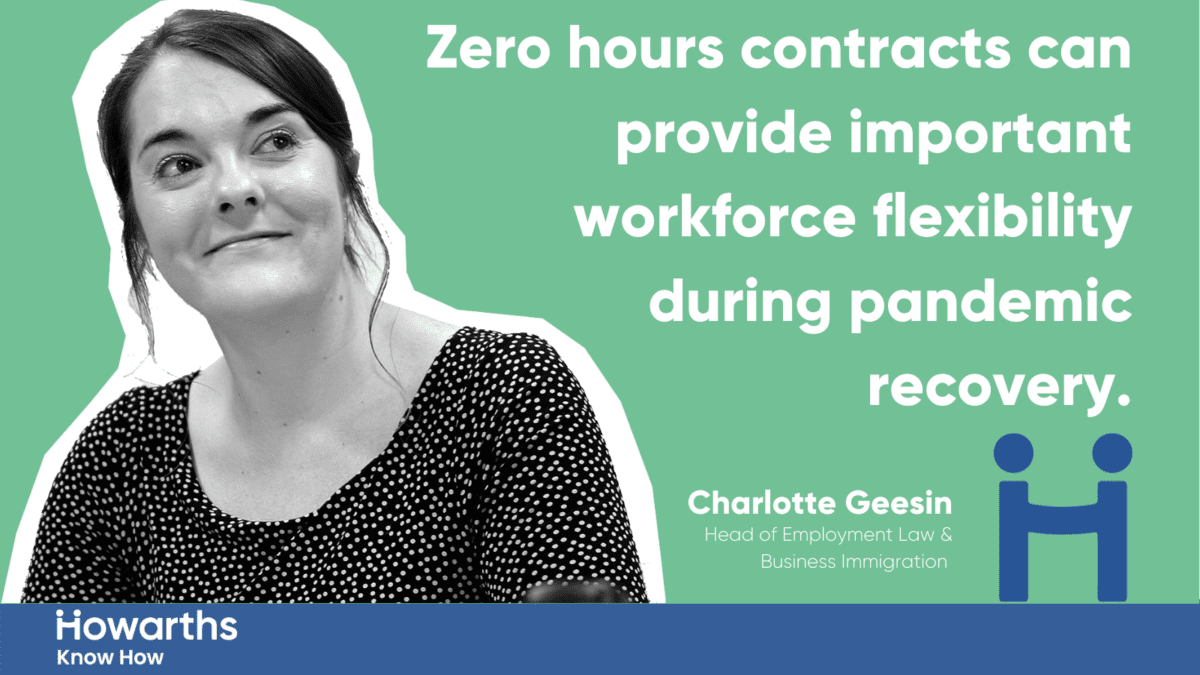“Zero hours contracts can provide important workforce flexibility during pandemic recovery”
The government must work to shift the perception of zero hours contracts and help businesses understand how to use them fairly, in order to achieve important workforce flexibility during the economic recovery from the pandemic, a leading employment law specialist has said.
Charlotte Geesin, head of employment law and business immigration at Howarths, says zero hours contracts have historically attracted “bad press”, but when used fairly, offer “a credible option that can help provide important levels of flexibility for employers and workers alike as industry reopens and we begin to recover the economy post-pandemic.”
Ms Geesin explained: “Sectors including hospitality and events, care, the arts, and sport and leisure are likely to rely heavily on zero hours contracts over the next six to twelve months, as they balance getting back on their feet with an understandable hesitance to invest in permanent employees at such an uncertain time.
“There have been stories in the news recently involving extreme examples where zero hours contracts have been abused by big businesses. However, they remain a very valid approach for employers to take, providing they understand how to use them properly and fairly.”
Ms Geesin explained that, over the past few years, several governments have committed to putting in place measures to regulate zero hours contracts and address loopholes which give rise to their misuse.
“The most recent commitments were made in and around The Good Work Plan, which was published in December 2018 and sought to address issues of one-sided flexibility and uncertainty around working hours and pay”, Ms Geesin explained.
She continued: “However, for businesses to really change their approach to zero hours contracts and use them in a way that permits a level of workforce flexibility while also protecting workers, the government will need to make specific, potentially legislative changes to support the basic principle that zero hours contracting is acceptable provided it is done in the right way.”
Ms Geesin said the government “must turn its attention back to the implementation and development of The Good Work Plan in light of the growth of the gig economy and the way in which we work in the UK”.
She said: “According to research by the University of Hertfordshire, between 2016 and 2019, the UK gig economy workforce doubled, with one in ten working adults using gig economy platforms in 2019.
“The pandemic has only accelerated this shift in the way we work, and thousands have lost their jobs. As a result, the gig economy and zero hours contracts will provide a lifeline for many people getting back into work, while affording businesses the workforce flexibility they need as they begin to find their feet again – but the government needs to act quickly if the mutual benefits that zero hours contracts can to our economic recovery are to be realised.”
